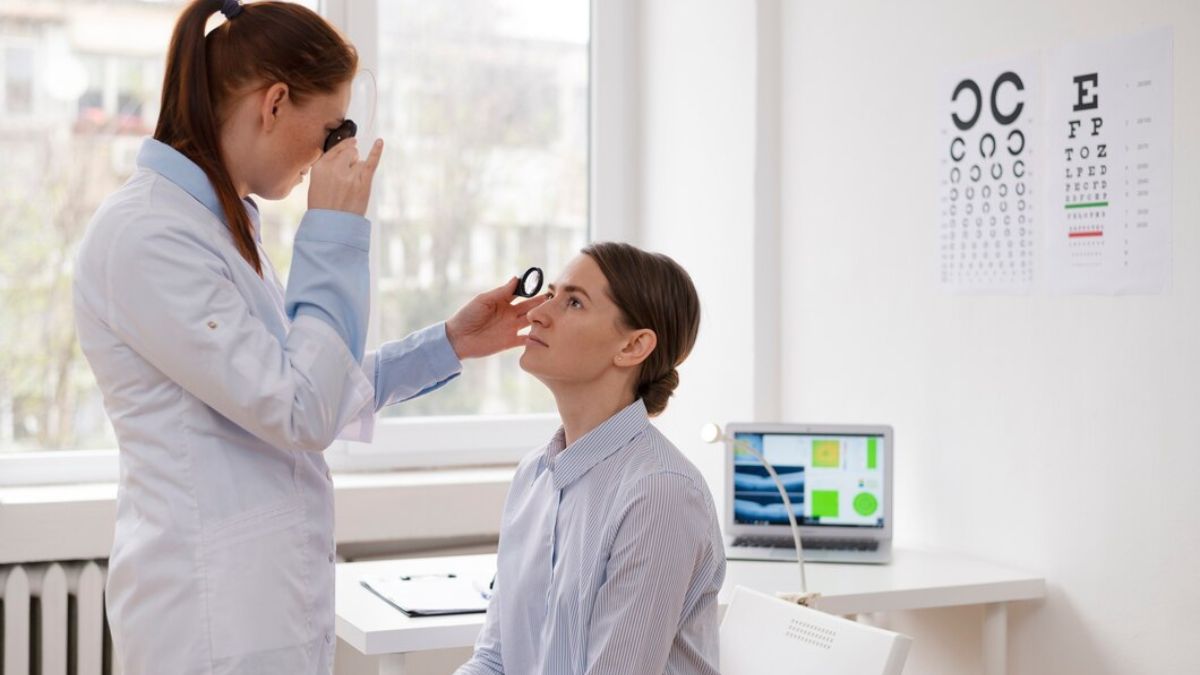HEALTH
Discover Laura Parks MSN Nashville, A Leader in Advanced Nursing Practice

Nashville’s vibrant healthcare landscape owes much of its success to professionals like Laura Parks, MSN—a dedicated nurse practitioner who embodies excellence in advanced nursing practice. Whether you’re a healthcare worker seeking inspiration or a Nashville local curious about the individuals shaping your community’s well-being, Laura Parks’ contributions are worth knowing.
This post dives into Laura Parks’ background, her role as a nursing leader, and how her work impacts Nashville’s medical community. Along the way, we’ll examine why her dedication to healthcare continues to inspire so many and highlight what sets her apart within her profession.
Who is Laura Parks MSN?
Laura Parks, MSN (Master of Science in Nursing), is a licensed and accomplished nurse practitioner based in Nashville, Tennessee. With years of clinical experience and advanced nursing education, she has established herself as a leader who blends technical expertise with compassionate care.
Her fields of specialization include [insert field if known, e.g., family medicine, internal health, etc.], but her influence extends well beyond specific medical domains. Through patient advocacy and continuous professional development, Laura embodies the dedication that Nashville’s healthcare sector is celebrated for.
The Growing Significance of Nurse Practitioners in Nashville
Addressing Rising Healthcare Demands
Nashville, often referred to as the “Healthcare Capital of the U.S.,” boasts a storied history of innovation and leadership within the medical field. However, with rapid population growth and an increasing number of residents requiring healthcare services, the demand for qualified professionals has never been higher. Nurse practitioners like Laura Parks are answering the call by providing accessible and high-quality care.
Bridging the Gap in Primary Care
Reports show that the United States faces a shortage of primary care physicians, with disparities most apparent in growing cities like Nashville. Nurse practitioners, equipped with advanced education like an MSN, are helping fill this gap, offering primary care and specialized services that significantly ease the burden on traditional healthcare structures.
Laura Parks is a shining example of how nurse practitioners can provide not just supplemental care but essential services that redefine healthcare accessibility.
Laura Parks’ Contributions to Nashville’s Healthcare Sector
Laura Parks doesn’t merely practice nursing—she elevates it. Here are a few areas where her contributions have made a tangible difference:
1. Delivering Patient-Centered Care
Laura is well-known for her ability to connect with patients on a personal level. By treating them as partners in their own health journeys, she ensures they feel supported and informed throughout their care. Patient-focused approaches like hers improve outcomes and enhance satisfaction across the board.
2. Advocating for Preventive Health
Through community outreach, educational initiatives, and patient consultations, Laura emphasizes preventive care. Her work encourages healthier lifestyles and aims to reduce the prevalence of chronic conditions, one patient at a time.
3. Mentoring Aspiring Nurses
Beyond her clinical responsibilities, Laura invests her time mentoring the next generation of nursing professionals. This commitment ensures that her expertise will continue to ripple through Nashville’s healthcare landscape for years to come.
4. Collaboration with Nashville Healthcare Organizations
Laura actively collaborates with hospitals, clinics, and other healthcare institutions in Nashville to improve care models and introduce innovative practices. Her work exemplifies how teamwork across disciplines can yield remarkable results.
Why Leadership in Advanced Nursing Matters
Leadership in nursing goes beyond clinical skills—it requires empathy, foresight, and a commitment to continuous improvement. Professionals like Laura Parks exhibit these qualities, ensuring that Nashville residents have access to world-class care.
Her focus on mentorship also addresses a crucial need for strong nursing leadership in inspiring and preparing future practitioners to tackle the challenges of modern healthcare.
Encouraging Diversity and Representation
Laura’s focus also promotes diversity within the nursing field, ensuring it reflects the varied communities it serves. This inclusivity leads to improved understanding of patient experiences and fosters trust between providers and the public.
The Future of Healthcare in Nashville
The blend of innovation and dedication seen in leaders like Laura Parks ensures that Nashville’s healthcare system remains resilient and adaptive. By championing nurse practitioners and advanced nursing practices, Nashville is setting benchmarks for cities nationwide.
The profession is likely to evolve further in coming years, with an increasing emphasis on telemedicine, specialized certifications, and patient empowerment. Visionary leaders like Laura Parks will undoubtedly play pivotal roles in shaping that future.
Key Takeaways for Healthcare Professionals
Want to follow in the footsteps of leaders like Laura Parks? Here are steps to guide your healthcare career:
- Invest in Education: Advanced degrees like an MSN position you for leadership roles and greater impact.
- Build Patient Relationships: Empathy and communication are just as critical as clinical skills.
- Stay Current on Trends: Healthcare is always evolving. Participating in continued education and professional networking keeps you prepared.
- Mentor Others: Share your knowledge and inspire the next generation of healthcare professionals.
Celebrate Excellence in Healthcare Leadership
Laura Parks, MSN, exemplifies the best of Nashville’s dynamic healthcare sector. Her commitment to clinical excellence, mentorship, and patient advocacy is an inspiration to healthcare professionals and patients alike.
Interested in learning more about advancing your nursing career or connecting with inspiring practitioners like Laura? Explore our resources and join Nashville’s thriving healthcare community.
HEALTH
Finding Strength in Community: The Vital Role of Support Groups in Addiction Recovery

The process of recovering from addiction is challenging and often requires a multimodal approach that considers both mental and physical health concerns. Among the various methods available to support this journey, support groups are one of the most helpful. These groups establish secure spaces where people exchange stories, give and receive support, and pick up applicable coping mechanisms. In a city like Seattle, attendees can find solace and guidance through gatherings such as AA Meetings Seattle, which serve as crucial networks for those seeking recovery.
The strength of support groups lies in their communal nature, providing a human connection that is both comforting and empowering. By uniting people who face similar struggles, these groups provide a feeling of empathy, support, and belonging. This community-based approach can significantly contribute to recovery, often becoming a pivotal element in maintaining long-term sobriety and mental well-being.
Introduction to Support Groups
In the realm of addiction recovery, support groups have cemented their status as indispensable resources. They serve as transformative spaces where individuals can openly express their struggles without fear of judgment, which can be crucial for those who have felt isolated or misunderstood. The power of peer support is grounded in empathy and shared experience, effectively creating a nonjudgmental atmosphere that encourages openness and honesty. This is not a new concept, but its importance has been increasingly recognized in recent years as part of a holistic approach to recovery.
The Science Behind Group Therapy
The success of group therapy is more than merely anecdotal. Scientific research substantiates its therapeutic value. Group settings harness the dynamics of shared human experiences, creating a unique environment conducive to healing. Studies suggest that individuals often achieve better outcomes when they feel part of a supportive community. The interpersonal interactions that characterize group therapy can lead to significant cognitive and emotional shifts, offering insights and healing that individual treatment might not provide.
Key Benefits of Joining a Support Group
Joining a support group extends beyond receiving emotional support to gaining practical life skills and coping mechanisms. Participants benefit from the collective wisdom of others who have navigated similar paths. This shared knowledge can be empowering, providing participants with diverse perspectives and strategies that have been successful for others. Additionally, the commitment to a group fosters accountability and a sense of responsibility toward maintaining one’s progress. Members often find motivation and a renewed resolve in seeing peers overcome similar hurdles.
Types of Support Groups for Addiction
Support groups can vary significantly in structure and purpose. The most traditional type is the 12-step program, such as Alcoholics Anonymous (AA), which has a long history of guiding individuals toward sobriety through structured steps and group accountability. Additionally, online support communities have become popular, offering asynchronous support transcending geographical boundaries. Faith-based groups also provide a spiritual dimension to recovery, integrating religious beliefs and values into the healing process. Each type of group offers distinct benefits and caters to different preferences and values, making it essential for individuals to choose based on their recovery journey.
HEALTH
The Benefits of Comprehensive Family Dental Care

Introduction to Family Dental Care
Family dental care considers the oral health needs of every household member, providing a comprehensive framework that ensures everyone—from toddlers just growing their first teeth to older adults needing specialized attention—receives consistent and high-quality dental treatment. This approach is immensely beneficial as it fosters a continuous care plan rather than fragmented approaches for different family members. It can significantly simplify logistics, as families can schedule consecutive appointments, reducing travel time and missed school or work hours. Moreover, healthcare professionals such as Dr. Dan Drakulich, DDS, exemplify a patient-focused approach, aiming to create lasting relationships that allow personalized and attentive care tailored to each individual’s needs.
Unlike single-focus dental practices, family dental care emphasizes adapting to the individual’s evolving dental requirements that change as they age. Whether it’s orthodontic referrals for teenagers or periodontal treatments for adults, this model of care guarantees that every phase of life receives its unique attention. This lifelong dental relationship strengthens trust and helps identify hereditary dental issues, providing an opportunity for earlier interventions and more effective treatments.
Preventive Care for All Ages
Preventive care plays a role in family dentistry, highlighting the significance of routine checks to maintain oral health and prevent disease. These practices, including bi-annucheckups and cleanings, shield against plaque accumulation, cavities, and gum disease. By catching issues early, dentists can propose less invasive solutions. Thus, families can minimize complex, costly interventions in the future. Additionally, advice tailored to dietary habits, brushing techniques, and proper use of dental floss can lead to healthier lifestyle choices that augment oral health.
For children, preventive care might also involve applying dental sealants to molars to prevent decay. For adults, preventive care focuses on maintaining gum health, a critical aspect of overall physical health. Studies suggest links between periodontal disease and systemic conditions, including heart disease and diabetes.
Standard Procedures in Family Dentistry
Family dentists are equipped to manage a variety of standard dental procedures. These range from cavity fillings, essential to halting decay, to root canals, which save teeth that otherwise might require extraction. The cosmetic aspect of family dentistry shouldn’t be overlooked, either. Teeth whitening and veneers aim to keep smiles healthy and enhance dental aesthetics, which can boost self-esteem.
It is invaluable for families to have all these services available in one location, often from a dentist they trust and have built a relationship with over the years or even decades. It alleviates stress and ensures a holistic view of each patient’s dental history, enabling accurate diagnoses and prognoses.
The Importance of Early Dental Visits for Children
Starting dental visits early can fundamentally influence a child’s outlook on oral health. These early encounters with the dentist can demystify the process and help children understand the importance of caring for their teeth. With childhood cavities being a prevalent concern, educating families about proper nutrition and oral cleaning practices becomes imperative. For comprehensive insights, check the importance of children’s dental visits.
Initial visits allow dentists to monitor the growth of the jaw and teeth, ensuring the detection and addressing of any possible problems, such as misalignment or crowding, before they escalate into more severe issues. Such proactive measures can be simple yet highly effective, such as recommending space maintainers or orthodontic evaluations when necessary.
Managing Dental Anxiety Across Generations
Dental anxiety is a common concern that family dentists often encounter and address. It can span generations, from children fearful of unfamiliar environments to adults apprehensive due to past negative experiences. Strategies such as mindfulness exercises, listening to music, and even virtual reality can play a role in calming nerves. In more extreme cases, sedation dentistry provides a safe option for those with profound anxiety or those requiring extensive procedures.
The American Dental Association suggests communication and gradual exposure as key strategies to lessen fear. This empathetic approach helps patients of all ages build a sense of control and comfort, encouraging regular dental visits instead of avoiding necessary care.
The Role of Technology in Modern Dentistry
Over recent years, the dental field has seen incredible technological advances, significantly enhancing the quality and precision of care. Digital X-rays, for instance, provide detailed images with less radiation exposure. At the same time, intraoral cameras allow the dentist and patient to view live images of the mouth on a screen. This transparency in diagnosis helps patients understand their condition better and participate in treatment decisions.
Other tools, like laser dentistry, can eliminate the need for sutures, reduce healing time, and increase comfort during procedures. Technological advances in dental materials have also led to more durable and aesthetically pleasing restorations, ensuring patients leave feeling better and looking great.
Choosing the Right Family Dentist
Selecting a family dentist is an important choice that affects your dental health journey and contentment. Key considerations should include the dentist’s experience, the ambiance of the dental office, ease of scheduling, and clear communication regarding treatments and costs.
Patients and their guardians benefit from selecting a dentist who prioritizes education and preventive care, contributing to better long-term outcomes. Reading patient reviews and testimonials helps gauge a practice’s reputation and service quality, helping you make an informed choice.
Conclusion: Lifelong Oral Health
The lifetime benefits of comprehensive family dental care cannot be overstated. It bridges convenience with thorough attention to health, involves every family member in promoting oral care, and provides anticipatory guidance that evolves with the patient. Through consistent and personalized care, family dentists improve individual smiles and contribute to the overall well-being of their communities, paving the way for generations of confident, healthy smiles.
HEALTH
The Importance of Eye Health and Routine Check-Ups

Introduction to Eye Health
Our eyes are immensely valuable yet often overlooked when discussing health. They allow us to experience the world in vibrant color and act as indicators of our overall well-being. Regular eye check-ups are vital because they help identify hidden health issues. For instance, conditions like hypertension or diabetes can often manifest in the eyes before they do elsewhere. This makes it crucial to integrate eye exams into your routine health care.
Why Regular Eye Check-Ups Matter
Eye check-ups offer much more than just vision correction updates. They are comprehensive evaluations that can detect diseases like glaucoma and macular degeneration, sometimes even before symptoms appear. Whether you live in a metropolitan area or a quiet suburb, scheduling regular visits to an optometrist Chicago can ensure that your eyesight remains sharp and that any potential diseases are identified and treated promptly, maintaining your quality of life. Early detection is pivotal in managing such diseases, which can otherwise lead to irreversible damage and vision loss. A comprehensive report from the American Academy of Ophthalmology indicates that routine eye examinations frequently uncover early indicators of systemic issues like high blood pressure and cholesterol.
These exams in Chicago help preserve eyesight and serve as preventive measures for broader health issues, emphasizing the interconnected nature of our body systems.
Common Eye Diseases and Their Prevention
Many eye diseases can profoundly affect your vision. Cataracts, for example, are a leading cause of blindness worldwide but are treatable with surgery. Diabetic retinopathy, often associated with diabetes, can severely impact vision but can be managed with proper medical care. Early intervention is crucial in minimizing damage and preserving sight. Preventative measures include maintaining good general health, protecting eyes from UV light, and staying informed about potential genetic risk factors. The National Institutes of Health provides comprehensive guidelines on preventive care, encouraging individuals to take proactive steps in preserving their eye health.
Daily Habits for Better Eye Health
Incorporating eye-friendly habits into your daily routine can significantly boost ocular health. Regular breaks from screens, optimizing lighting during work, and ensuring proper ergonomics can protect your eyes from unnecessary strain. Moreover, wearing sunglasses outside helps shield the eyes from harmful ultraviolet rays, potentially reducing the risk of cataracts and macular degeneration. Ensuring at least seven hours of restful sleep a night is also critical, as it allows your eyes to recover from the day’s exertions and reduces the risk of dark circles and puffiness. Making these small changes can yield significant long-term benefits for your eyes.
The Role of Nutrition in Vision
Nutrition significantly affects eye health. A diet high in antioxidants may assist in protecting the eyes from damage. Vitamins such as A, C, and E, along with minerals like zinc, are beneficial for maintaining good vision. Foods like carrots, sweet potatoes, and kale, rich in beta-carotene, can improve eyesight and prevent night blindness. Omega-3 fatty acids, often present in fish such as salmon, are advantageous for eye health, especially in lowering the chances of dry eyes and age-related macular degeneration. Incorporating these nutrients into your diet bolsters the defenses of your eye tissues, supporting prolonged visual health.
Impact of Screen Time on Eyes
As digital devices grow more essential to our lives, regulating screen time becomes crucial for eye health. Extended time spent in front of digital screens may cause digital eye strain, which presents symptoms like dry eyes, blurred vision, and headaches. The hardworking 20-20-20 rule offers relief by reminding individuals to look at an object 20 feet away for 20 seconds every 20 minutes. Extended time spent in front of digital screens may cause digital eye strain, which presents symptoms like dry eyes, blurred vision, and headaches. Implementing these strategies can enhance visual comfort throughout your workday.
Understanding Vision Changes with Age
It is natural for vision to change with age. Many people over 40 experience difficulty focusing on close objects, a condition known as presbyopia. These age-related changes are regular and often require adjustments such as reading glasses or bifocals. However, specific issues like cataracts, glaucoma, and age-related macular degeneration become more familiar with advancing age. Awareness of these issues and regular visits to an eye care professional can help manage these changes effectively. Intervening early can prevent significant vision impairment and help maintain an individual’s quality of life and independence.
Conclusion: Making Eye Health a Priority
Your eyes enable you to see and are also windows to your overall health. Prioritizing eye health through regular exams and daily mindful practices can prevent many common vision problems and detect underlying health conditions early. It is never too late to start benefiting your eye health through dietary changes, lifestyle adjustments, or periodic visits to the optometrist. By taking these proactive steps, you ensure that your vision remains sharp and clear, allowing you to enjoy all the beauty life offers for years to come.
-

 EDUCATION11 months ago
EDUCATION11 months agoHighlights From the September 18 Board of Education Meeting
-

 BLOG10 months ago
BLOG10 months agoWho Is the Father of CSK? A Deep-Dive Into Chennai Super Kings’ Dominance in Cricket
-

 PLATFORM10 months ago
PLATFORM10 months agoThe Ultimate Guide to MyDesi.Net – Where Culture Meets Connection
-

 EDUCATION11 months ago
EDUCATION11 months agoA Look Back at the Board of Education City of Linden 2020 and Manganello’s Impact
-

 HOME IMPROVEMENT10 months ago
HOME IMPROVEMENT10 months agoHome Depot Tool Rental, Everything You Need to Know
-

 TECHNOLOGY11 months ago
TECHNOLOGY11 months agoUnderstanding Mega-Personal.Net Technology and Its Applications
-

 BLOG9 months ago
BLOG9 months agoUnderstanding Missav: Everything You Need to Know
-

 TRAVEL10 months ago
TRAVEL10 months agoTravel Smarter with TravelsForNow, Your Guide to Exploring the World
